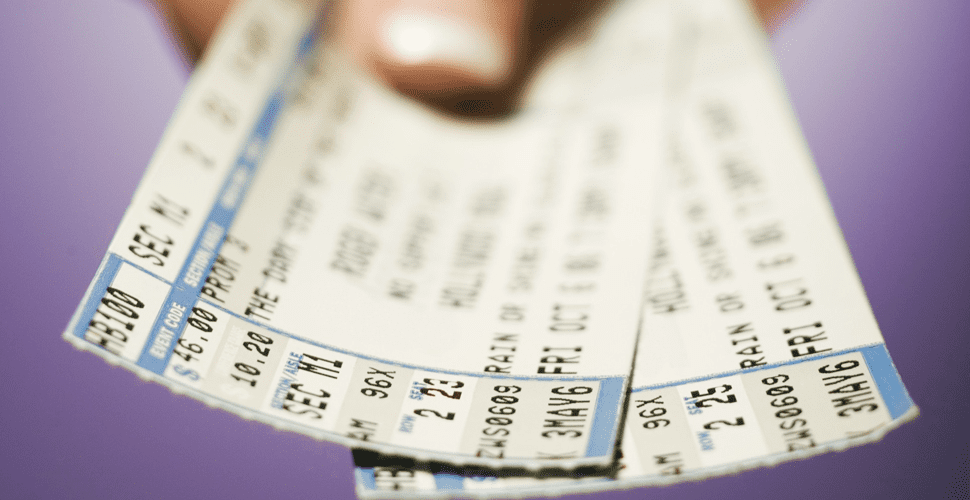Tomorrow is the FTC’s Online Ticketing Workshop in Washington, DC and with the panels announced and the agenda set, I thought I’d point out a few thoughts I have after reflecting on this for a few moments.
I’m expecting a more contentious affair than a lot of other people are:

I live in DC.
I know that these things aren’t convened as some sort of love-in and I know how toxic DC is, on the whole, these days.
Then, once I saw the speakers and the moderators, I realized that this is likely to be a fairly contentious affair.
What is to be gained by this?
Well, the FTC can show a tough, pro-consumer stance.
One challenge that the world of tickets is going to encounter heading into this thing is that for the first time in a generation, the federal government seems like they are willing and ready to revisit the nature of anti-trust enforcement.
Which means that the FTC’s lawyers are likely to have a tougher stance than they would in general in regards to fees, distribution, advertising practices, and other things that are just taken as the way things are done in tickets.
I’m sure people have been prepping, but as the tides seem to be shifting in DC…are they prepared to have a contentious talk about some of the things that ticketing folks consider best practices?
BOTS! BOTS! BOTS!
I was pretty interested in reading the report that Distil Networks had been able to say that any malicious bots were on the attack.
As Andrew Thomas from the UK has told me many times, how you define a BOT matters as much as what the BOT is doing.
His point being, if you don’t define things well, pretty soon you can’t even ask Siri to open your Ticketmaster app on your iPhone or for Alexa to buy something for you on Amazon.
Knowing how in the earlier days of online ticket sales, there were many people and organizations built on the back of manipulating the online sales process to horde tickets, the idea of BOTS being a completely innocent thing is ridiculous. But as technology has advanced and the nature of the customer journey and customer buying habits have changed, a lot of times the issue of BOTS feels more like a red herring than it does something that can be managed and handled for the benefit of the consumer.
Consumer protection as a term needs clarification:
I’m really going to be interested in hearing the panel at 11:30 about consumer protection.
Why?
Well, I’ve watched a lot of these consumer protection campaigns take shape and if I can say so, they often have the hint of BS to them.
I say this because I get it: we are all marketing our wares.
But in many instances, the solution is worse than the illness.
Take as an example the Billy Eilish situation in Chicago. This was a Verified Fan show, meant to “protect” fans and they ended up worse off.
This was just the latest in challenges with a system designed to “protect” fans following issues with Pearl Jam, Taylor Swift, and many other places.
My stance on this issue is that we have the tools available to distribute, sell, and protect tickets with greater efficiency than we are often seeing in the US. Don’t believe me, go see the Ticketing Professionals Conference in the UK in March.
The truth is that we need to make the ticket buying process: simple, safe, and secure.
We don’t do that by slinging mud at each other over BOTS and other forms of BS that maybe not the biggest issues right now.
The biggest challenge facing tickets may not show up in the right way at this workshop:
I’m on the record over and over again telling you that demand is the number one issue facing tickets right now.
Despite reported record high revenues in sports, concerts, and theatre, we see more and more often that fans are staying away.
This tells me a couple of things pretty readily:
- Somewhere the pricing mechanism is working and somewhere it is broken.
- Consumers aren’t seeing the same value from the live experience that they should. And, that’s a marketing challenge.
I’m sure that there will be a lot of kettle-drumming about how awful the secondary market is.
I’m also sure that someone is going to have to point out how closely tied a lot of teams, promoters, and venues are to the secondary market and how these relationships help maintain the high revenues.
Why are teams, promoters, and venues tied to the secondary market?
The investments the secondary market has made in digital marketing, customer acquisition, and cold, hard cash.
The challenge is that despite these investments, the secondary market isn’t really set up for the type of brand building, customer development, and relationship building that would really help feed consistent demand.
This is a problem and since there aren’t really any marketers on the panels…I doubt it will come out in this way.
Customer Confusion:
This is an afternoon session and I think it is going to be pretty interesting to see where consumers come down on this…
In my research, consumers don’t view the ticket market as a secondary market and a primary market. They just view it as a place to buy tickets.
Due to the pricing structure of a lot of games, concerts, and events, people aren’t even concerned about where they get their tickets as long as they get them at a price that they can stomach.
While customer confusion is a real issue because there are always going to be low-information consumers, much as there are low-information voters, you are also not likely to be able to design a solution that ever educates consumers totally.
You are still going to have situations where people are confused and go to the wrong sites to buy tickets.
The best medications for that is likely somewhere in the area of:
- Marketing and using a “seal of approval” much like the Better Business Bureau, the NATB’s Fan Guarantee, or STAR’s symbol in the UK.
- A better emphasis on driving people to the preferred destination using more direct marketing tactics like strong a call-to-action and more clear marking of the correct destination.
- Creating more “owned” marketing assets like segmented email lists and content channels so that artists, teams, and others have a chance to own the relationship with their consumer.
I think it is going to be an interesting event as much for what is said and brought up as for what isn’t.
Will you be there?
This post originated on DavidWakeman.com. It has been republished here with permission. Wakeman is a branding and strategy expert who often opines about the ticketing world on his website and twitter. If you like this stuff and the stuff he usually posts, he does a Sunday email that talks all about value, connection, and humans. You can get that for free by sending him an email at [email protected]. Join him for a free webinar “10 Ways to Sell More Tickets in 2019” on Tuesday June 25: https://webinar.getresponse.com/zjIBP/sellmoretix?uid=0ca0695721f26715f4a117a1fb87f0b1



